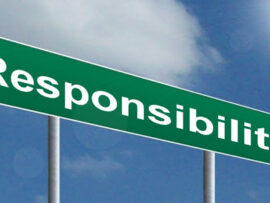January 3rd, 2012. The first full work day of the new year. The parties are over, the last of the confetti has been cleaned up, and life is getting back to normal once again. For most of us that means settling into the old routine, but for a few individuals this date officially marks the beginning of something new: It is the official start of the 2012 race for the White House. For the past couple of weeks, Republican candidates have been campaigning in Iowa in preparation for the Iowa Caucus, where the first votes will be cast in this year’s race for their party’s nomination. Although the presidential election is a little less than a full year away, the campaigning, and now the voting process, has officially begun.
So whom to vote for? Obviously, that depends on your perspective on the various issues. For many voters, it is the candidate’s position on taxes and the economy that will determine their choice; for some, the major issue is healthcare; others regard Israel and foreign policy as the issues of paramount importance. While it is very logical and understandable to make our decisions based on the candidates’ positions on the critical issues, it is also interesting to note that relatively little emphasis is placed on the candidates’ personal character. Values such as honesty, integrity, compassion ... all of these are worthy traits that we would all like to see in our presidents and leaders, in general; however, rarely are they the guiding factor in choosing a candidate.
In this week’s Parsha, VaYechi, Yaacov (Jacob) is on his deathbed, sharing his final words with his children, the 12 Tribes of Israel. After seeing his three older brothers receive words of rebuke, Yehuda (Judah) begins to draw back, afraid of what might be said to him. After all, no human being is perfect, and Yehuda was well aware of his personal shortcomings. However, what happens next catches Yehuda by surprise. Yaacov calls out emphatically, “Yehuda, your brothers shall acknowledge you (as their leader)!”
Why did Yaacov single out Yehuda from amongst all his brothers to assume the mantle of leadership and kingship? We must bear in mind that although Yaacov did rebuke his sons, nevertheless they were all holy and extremely righteous individuals, way beyond anything that we can begin to fathom. So what was so special about Yehuda that set him apart, making him deserving of this honor?
The answer is responsibility. Yehuda assumed responsibility for his actions in a manner that far surpassed the norm. In a most embarrassing situation, where his daughter-in-law, Tamar, was being accused of a serious crime, Yehuda stepped forward and courageously exonerated her, publicly admitting his role in what took place. It would have been very easy for Yehuda to remain silent and avoid embarrassment. Yehuda could have found many justifications to avoid saying anything and just not get involved. But Yehuda was not the average person; he was someone who possessed the highest moral and ethical standards, and was willing to put himself on the line, even to the extent of suffering public humiliation, in order to do what was right. Yehuda was willing to stand up and take full responsibility for his decisions and actions. And that quality, the Torah teaches us, is what makes someone worthy of leadership.
Of course, being human, we all make mistakes. But we can achieve greatness by recognizing when we have sinned, admitting to it, and starting anew with a strong resolve to do better. The Torah is teaching us that the single most important quality in a king is the ability to take responsibility. Even if he makes a mistake, he won't dig in his heels in denial, but rather admit to his mistakes and chart a new, corrected course. We can rest assured that for a person who displays this kind of character, personal fame or fortune is not what’s important. Rather, his decisions are made and guided by the higher values of what’s right and proper.
Although none of us is running for president this time around, we are all leaders on some level. As husbands or wives, as parents or children, we make decisions that impact and influence others to some degree. Let us learn the lesson of what it means to be a true leader. We sincerely pray that we won't stumble or fall. But if or perhaps when, we do, let us recall that what makes a good person great is the ability to assume responsibility for the past, and thereby create a brighter future.

